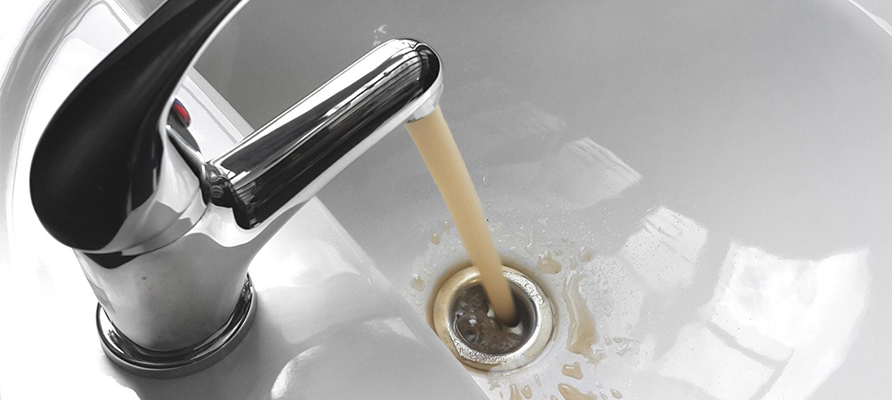How to Deal with Brown Water from Tap
Brown water flowing from your tap can be a disconcerting sight, but it’s a problem that many households encounter at some point. In this article, we will explore the causes of brown water, its potential health concerns, how to identify the issue, and steps to deal with it. We’ll also discuss preventative measures to ensure it doesn’t happen again.
What Causes Brown Water?
Brown water from your tap can have various causes. It’s essential to understand these causes to address the issue effectively.
- Corroding pipes: Over time, pipes can corrode and rust, which can cause deposits of minerals and sediments to accumulate in the water supply. This can cause the water to turn brown or discolored.
- Disturbance in minerals or sediment: Minerals and sediment are naturally occurring in water and pipes. If there has been construction near your home or work being done on the main water line, it could cause a disturbance, leading to brown water. Normally, this problem will correct itself within a few hours.
- Pressure changes: Changes in water pressure in your pipes can stir up dirt, rust particles, and sediment that coat your pipes and cause brown water to come from your taps. Pressure changes mainly occur during significant temperature changes, when fire hydrants are opened or closed too quickly, or from routine maintenance with city water lines.
- Old water lines: Many homes built before 1960 were plumbed with galvanized steel water lines. As these water lines age, they can collect rusty sediment that can come out at the tap when you turn on your faucet.
- Sulfur dioxide: Certain elements from sulfur dioxide can cause water to turn brown when combined with hot water.
If you are experiencing brown water, it is important to identify the cause as soon as possible. If the problem is ongoing, you may want to consider installing a whole-home filter to keep your water clean and clear. If you suspect that your pipes are corroded or damaged, it is best to call a professional plumber to investigate and repair the issue.
Is It Safe to Drink?
In most cases, brown water is safe for consumption, but it’s not very appealing. The discoloration is often due to the presence of minerals like iron or manganese in your water. While these minerals can affect the taste and appearance of your water, they are typically not harmful. But in some cases, brown water from the tap can be a sign of lead contamination, especially if the issue is a rusty pipe which can pose several health problems. If there’s a leaking and rusty plumbing pipe, chances are bacteria could have also gotten into the water. So, it is best to cautious and prioritize safety.
Whether or not it is safe to drink brown water depends on the cause of the discoloration. Here are some key points to consider:
- Iron and magnesium are not harmful: Water contaminated with iron and magnesium, although unsightly, smelly, and unpleasant to drink, is not harmful to you. Since your body requires these elements to function properly, it is not a health concern.
- Rusty pipes can cause lead contamination: If the issue is a rusty pipe, then this can be a sign that lead is present in your water, which can cause several health problems. Lead contamination can be hazardous, so it is best to have your pipes checked by a professional plumber.
- Other health hazards: Brown water can cause other health hazards and inconveniences down the line. For example, corrosion of pipes is another common culprit when it comes to brown water. A corroding pipe is the ideal breeding ground for a plethora of bacteria to build up in the water supply, in addition to the iron sediment. It’s also possible that your water includes mildew at this point.
In general, if you are experiencing brown water, it is best to identify the cause as soon as possible. If the problem is ongoing, you may want to consider installing a whole-home filter to keep your water clean and clear. If you suspect that your pipes are corroded or damaged, it is best to call a professional plumber to investigate and repair the issue. If you are unsure whether your brown water is safe to drink, you can contact your local water utility or health department for guidance.
Identifying the Issue
When you first notice brown water flowing from your tap, it’s essential to determine whether the issue is temporary or ongoing. Temporary discoloration is a common occurrence and is often related to external factors, such as maintenance work in your area. If you suspect temporary brown water, the best initial step is to run your tap for a few minutes. This flushes out any sediments or particles that might be causing the discoloration. If the water gradually clears up, it’s likely a short-term problem caused by external influences.
However, if the problem persists, it’s crucial to investigate further. Ongoing brown water can indicate issues within your plumbing system or the water supply itself. To identify the cause, pay attention to the following:
Duration of the Issue: If brown water has been a consistent problem for days or weeks, it’s a clear sign that there may be a more significant issue that requires attention.
Neighbors’ Experiences: Check with your neighbors to see if they’re facing similar problems. If they are, the issue may be related to the communal water supply, and you should collectively report it to the water provider.
Water Temperature: Pay attention to whether the brown water appears when using hot water, cold water, or both. This can help pinpoint the source of the problem within your plumbing system.
Water Pressure: Check if the water pressure is affected when you experience brown water. A drop in water pressure can be indicative of a blockage or corrosion in your pipes.
Water Quality Reports: Contact your water provider to request recent water quality reports for your area. This can help you assess if there are any ongoing water quality issues that might be related to the discoloration.
Temporary Discoloration
Temporary brown water can be a perplexing but common occurrence that results from various external factors. These factors often disrupt the flow and quality of water, leading to the unsightly discoloration. Understanding the potential sources of temporary discoloration is vital in determining the most appropriate response. Here are some additional insights:
Sediment Disturbance: One of the primary reasons for temporary brown water is the disturbance of sediment within the water distribution system. This sediment can accumulate over time in the pipes and mains, composed of minerals like iron and manganese. When maintenance work is conducted or the water supply is suddenly altered, this sediment can be stirred up, causing the water to turn brown.
Water Pressure Fluctuations: Fluctuations in water pressure, such as sudden surges or drops, can also contribute to temporary discoloration. These pressure changes can agitate sediments in the pipes, leading to the release of discolored water when you turn on the tap.
Main Breaks and Repairs: Maintenance work on the main water supply lines, such as repairing water main breaks, can introduce temporary brown water. These repairs often involve flushing the system, which can dislodge sediments and lead to discolored water emerging from household taps.
Local Construction: Construction activities in your neighborhood, including excavation or pipeline installations, can disrupt the water distribution system. This disturbance can, in turn, cause temporary brown water in nearby homes.
Steps to Deal with Brown Water
Here are steps you can take to deal with brown water effectively.
Running the Tap
As mentioned earlier, running the tap for a few minutes is the first thing to try. This can help clear out any sediment that might be causing the discoloration.
Contacting Your Water Provider
If running the tap doesn’t resolve the issue, it’s a good idea to contact your water provider. They can provide insights into any maintenance work or potential issues in your area.
In-Home Water Filtration
Investing in a water filtration system can be an excellent long-term solution to address brown water problems. Filtration systems can effectively remove impurities from your tap water, ensuring it’s clear and safe.
Regular Maintenance
To prevent brown water in the future, it’s essential to maintain your plumbing system. Regular checks for rust, sediment buildup, and pipe maintenance can help avoid the issue.
Preventing Future Occurrences
Prevention is the best way to deal with brown water. Here are some preventative measures to consider.
Understanding Your Plumbing
Knowing the age and material of your plumbing can help identify potential issues. Older pipes may be more prone to rust and corrosion.
External Factors
Consider external factors like nearby construction work or changes in the water source. These can also influence water quality.
Why hire a professional plumber to deal with brown water from the tap?
Brown water coming from your tap can be a sign of rust or sediment seeping into your pipes. Here are some reasons why you should hire a professional plumber to deal with brown water from your tap:
- Expertise: A professional plumber has the expertise and experience to identify the root cause of the problem and fix it properly. They can also provide advice on how to prevent the problem from recurring.
- Safety: Brown water from your tap may contain harmful contaminants, such as bacteria, that can pose a risk to your health. A professional plumber can ensure that your water is safe to use and drink by identifying and fixing the source of the problem.
- Efficiency: A professional plumber can fix the problem quickly and efficiently, saving you time and money in the long run. They have the necessary tools and equipment to diagnose and fix the problem, and can also provide advice on how to maintain your plumbing system to prevent future issues.
- Peace of mind: Hiring a professional plumber to deal with brown water from your tap can give you peace of mind knowing that the problem has been properly identified and fixed. You can also rest assured that your water is safe to use and drink.
In summary, hiring a professional plumber, especially in cases of emergency plumbing like brown water from your tap, is important for your safety, efficiency, and peace of mind. They have the expertise, experience, and tools to identify and fix the problem properly, and can also provide advice on how to prevent future issues.




